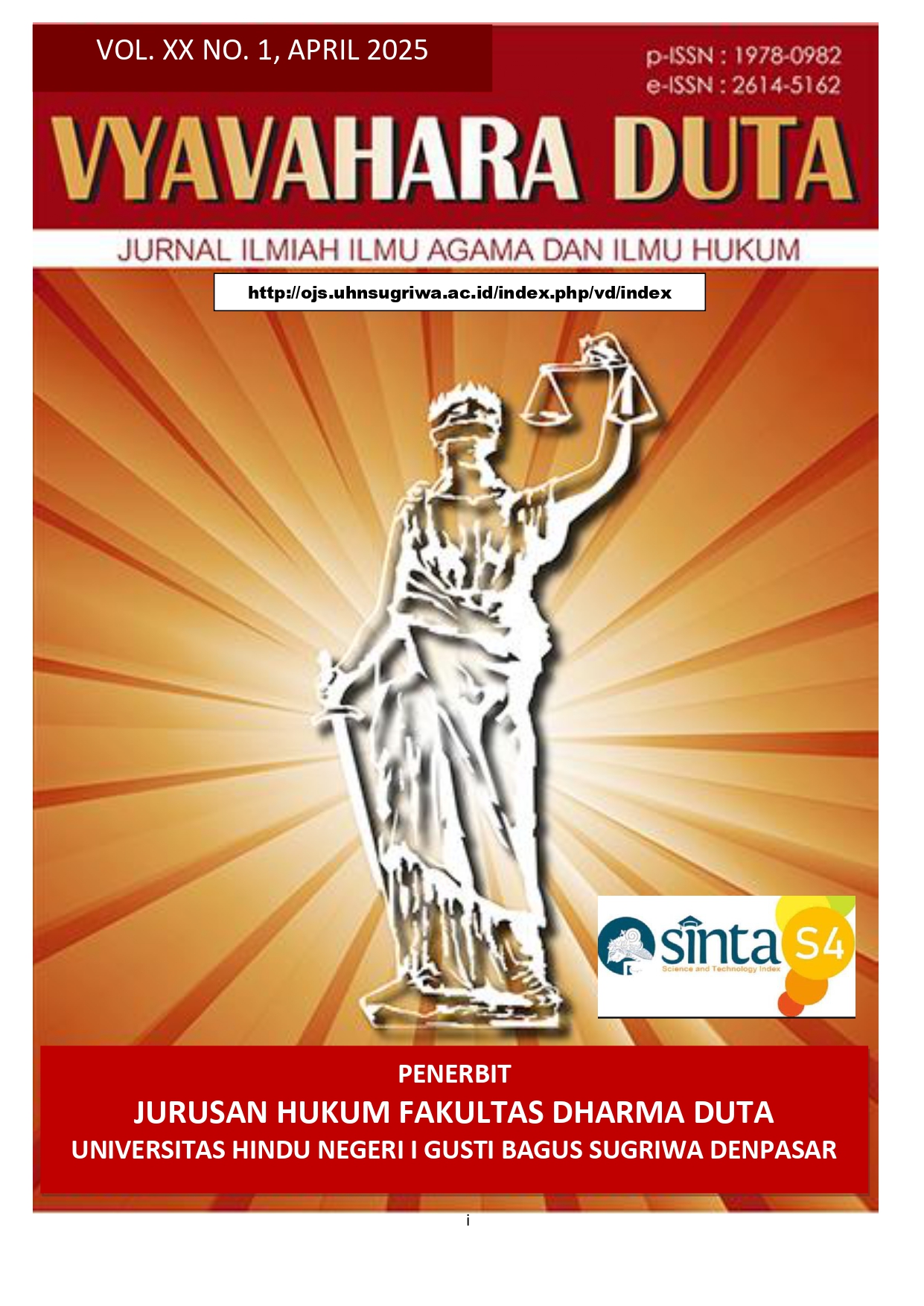TINJAUAN YURIDIS TENTANG KEKUATAN HUKUM AKTA DI BAWAH TANGAN DALAM PEMBUKTIAN
DOI:
https://doi.org/10.25078/vyavaharaduta.v20i1.4727Abstract
There is no provision governing whether an agreement is made in writing or made orally. In the event that the agreement is made in writing, whether the agreement is made in front of an authorized public official (notary) or the agreement is made under hand. If a written agreement is made in front of an authorized public official (notary), it will produce a deed called an authentic deed. A deed is a writing that can explain/explain a legal act that can be used as a means of proof for a legal act. The difference between a deed under hand and an authentic deed, where an authentic deed has perfect evidentiary power, meaning that if a person submits an authentic deed to the judge as evidence, then the judge must accept and consider what is written in the deed as an event that has actually occurred. While the deed under hand is said to have perfect evidentiary force, if the parties to the agreement acknowledge or disprove the signature contained in the deed. This can be interpreted as the parties admitting or not denying the truth written in the agreement. So the deed under hand acquires the same evidentiary force as an official (authentic) deed











